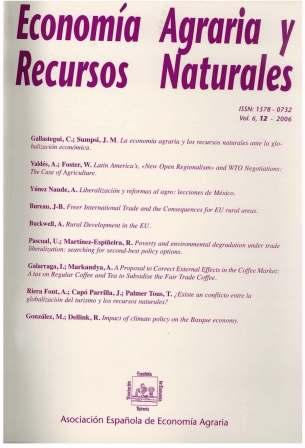Latin America’s «New Open Regionalism» and WTO Negotiations: The Case of Agriculture
Palabras clave:
Free Trade Agreements, New Open Regionalism and Agriculture.Resumen
This article analyses past trade trends and agricultural protectionism in Latin American agriculture, by examining observed changes in Latin American agriculture and trade policies over the last 20 years that have led to what the authors call the«New Open Regionalism». It also discussed the conflicting interests and various trading positions taken up by Latin American countries in multilateral trade talks, as a result of the strong heterogeneity between net agricultural exporters and importers. The authors show that the repeated failure of the Doha round of trade talks opens the door for bilateral or sub-regional free trade agreements, concluding with the prediction that regional integration in Latin America will come about as a result of agreements between various sub-regional trade blocs. The weakness of internal demand makes the development of the region’s agri-food sector highly dependent on exports, the growth of which is one of the main economic drivers in these countries, particularly net exporters. In addressing the issue of the distribution of profits from trade liberalization, the authors propose a variety of schemes that have already proved their effectiveness in countries such as Mexico, Turkey, Brazil, Colombia, Nicaragua and Honduras.Descargas
Publicado
2011-10-17
Número
Sección
Artículos

